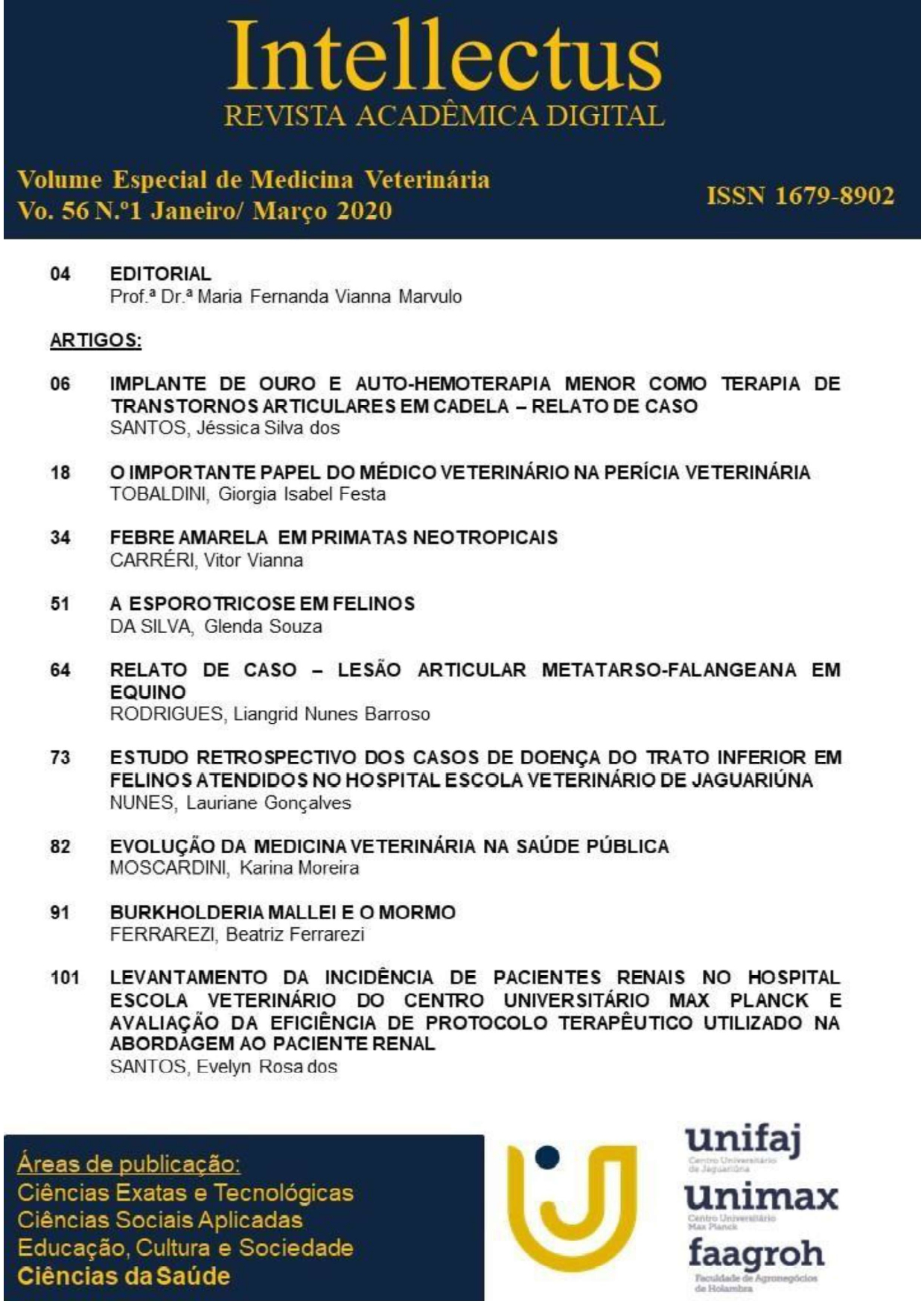Survey Of The Incidence Of Renal Patients At The Veterinary School Hospital Of The University Center Max Planck And Evaluation Of The Efficiency Of Therapeutic Protocol Used In The Approach To The Renal Patient (Case Report)
Keywords:
Renal diseases, Therapeutic evaluation, Clinical stagingAbstract
The kidneys have an important role in the homeostasis of the organism by performing blood filtration and excretion of metabolites. In most of the consultations, it is observed that the animals have a significant impairment of renal function, being masked by the activation of adaptive mechanisms: hypertrophy and hyperplasia of the nephrons. In order for the identification of the renal patient to be made early, it is essential to perform complementary exams and for the adequate follow – up and it is essential to perform the clinical staging of the disease. The aim of the study was to survey the incidence of the animals with renal disease treated in the veterinary school hospital of the Max Planck university center (HEV - Unimax) and, through a case report, to evaluate the practical application of a therapeutic protocol that integrates alternative and palliative medicine as a method of treatment to the renal patient. The methodology was based on the sample survey of HEV – Unimax, in the period from 2014 to 2018, to evaluate how the diagnosis, treatment and follow – up of the renal patient was performed and had the choice of a clinical case to evaluate a therapeutic protocol with two fronts of approach: the use of alternative medicine and palliative methods. The results were based on the data obtained ant the tables of the Microsoft Excel 2010 and Google Drive packages were used for accounting. It was concluded that most animals attended symptomatology was of male dogs, without definite breed with six to fifteen years old and it was noted that staging is not performed in the clinical routine. Moreover, it is concluded that the application of therapies (alternative and paliative) did not prove to be efficient in control of renal disease in the case reported.



